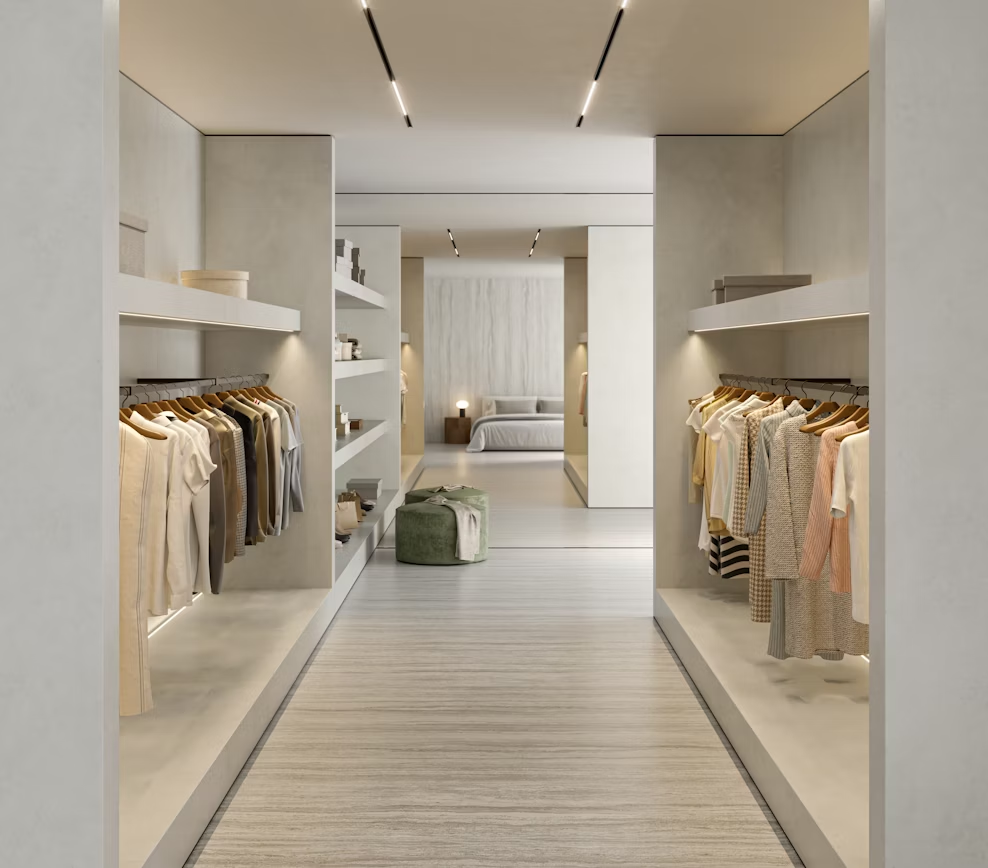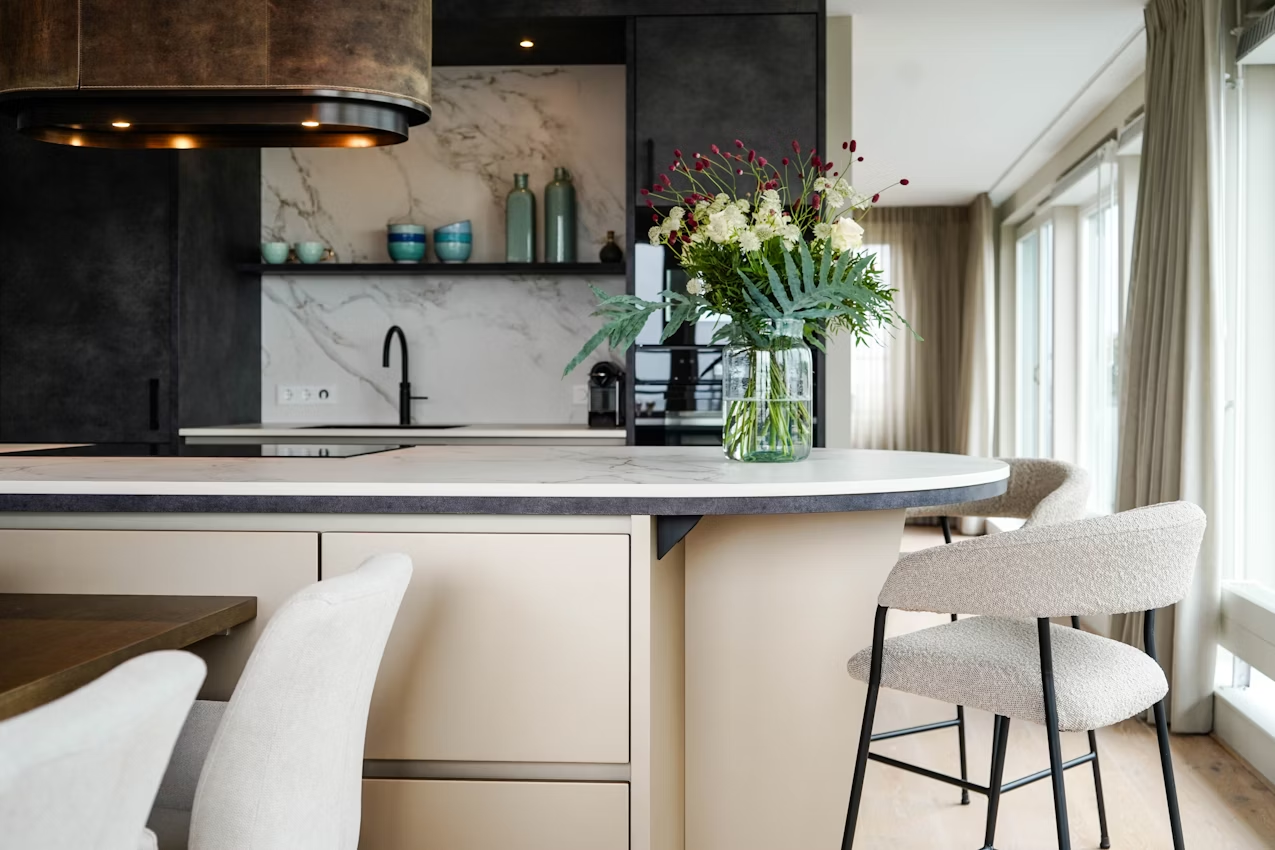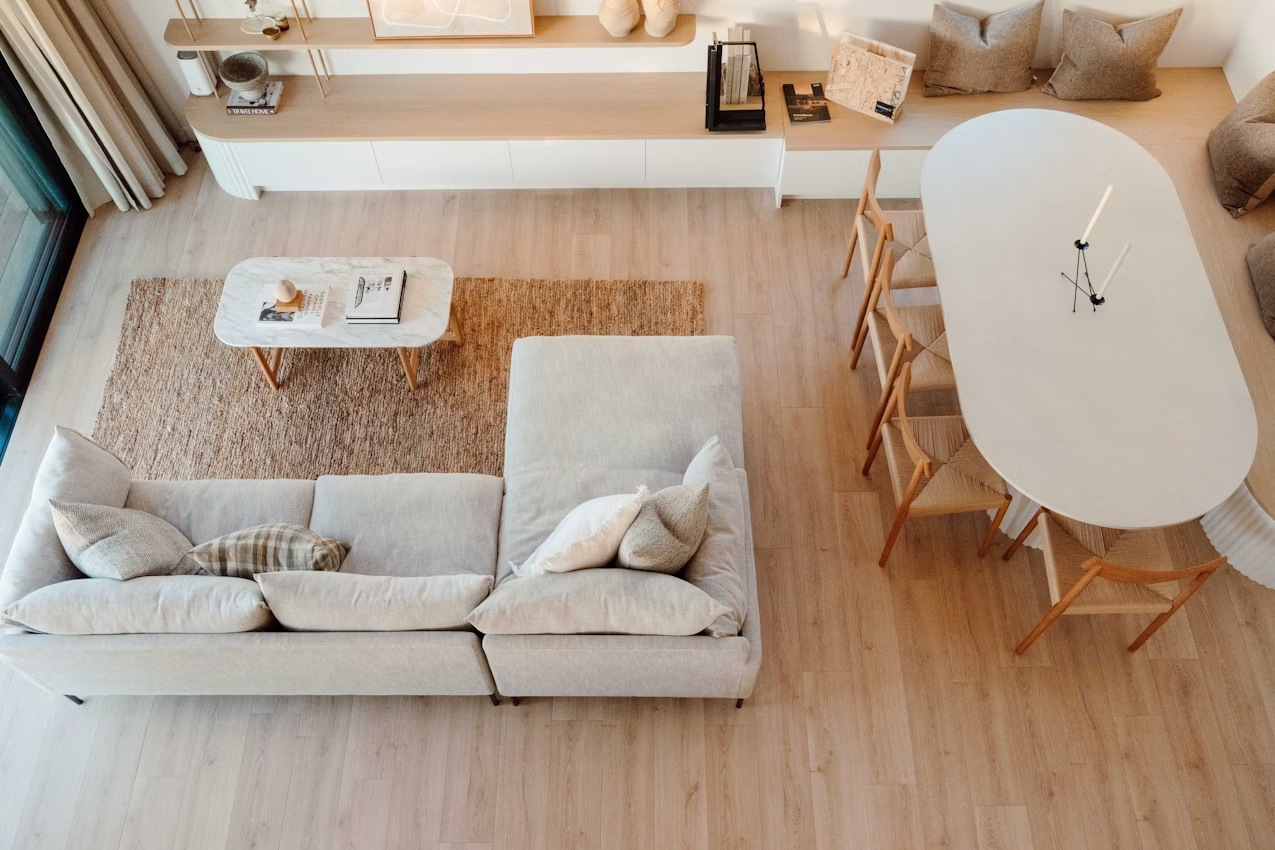
Granite Worktop vs Quartz Worktop: The 2025 Buying Guide
It is super exciting and pompous to make a big decision for your British kitchen. And what’s the centrepiece other than a kitchen worktop that ties your entire design together? In the UK, the debate often comes down to two powerhouse materials: granite and quartz. Both are beautiful and highly durable, but they have very different characteristics that can impact your kitchen’s look, feel, and future.
This 2025 guide cuts through the noise. We are breaking down the archangel differences to help you decide which material is the perfect fit for your lifestyle and design vision. We will compare them side-by-side. In this way, you can see which one authentically comes out on top.
Ease of Maintenance
As a porous stone, granite worktops require some effort to maintain its beauty. For example, you need to seal them annually to prevent stains and keep them hygienic. You also need to use special, pH-neutral cleaners to avoid damaging the sealant. Daily cleaning is simple with warm and soapy water. However, the sealing process is an ongoing task that you must remember to do.
But when we talk about quartz countertop, it is an easy winner in this category. It is a non-porous material, so it never needs sealing. Its low maintenance is a huge selling point for busy homeowners. This saves both time and money in the long run.
You can clean it with simple soap and water. That’s it! However, always avoid harsh chemicals and abrasive cleaners. Gentle and everyday cleaners are perfectly fine.
Who is the Winner?
Quartz wins when it comes to low maintenance worktop materials. The fact that quartz does not require any sealing shows that it is a clear winner for ease of maintenance. It is a far more practical and less demanding material for everyday life.
Quartz Cost vs Granite
The quartz worktop price is generally more stable and often slightly lower than granite. This is because it is an engineered product. So, the quartz worktop price is not as affected by global supply chains or the rarity of a specific quarry. However, premium brands and complex designs are more expensive. [Installation costs are also a factor. We will discuss it later.]
Oh the flip side, granite prices can vary dramatically. The cost depends on the rarity and colour of the specific stone. More exotic and unique granite types are significantly more expensive. Installation is also more costly due to the weight and complexity of working with natural stone. A basic granite slab is sometimes cheaper than a high-end quartz. But…granite is the more expensive option (on average).
Who is the Winner?
It is a tie. On average, quartz is slightly less expensive. However, granite is sometimes cheaper depending on the specific slab and your kitchen’s layout. The cost difference is often negligible for a basic (or common) colour.
Durability and Scratch Resistance
Did you know granite is a natural stone formed under immense heat and pressure? This is why it is incredibly hard and resistant to scratches from knives or everyday kitchen tools. You would need a significant impact to chip or crack it.
However, because it is a natural material, it has small fissures or pores. These can sometimes be weak points in the slab. Natural variations in density mean some granite types are tougher than others. It is a robust material but not completely indestructible.
Quartz is an engineered stone made from around 90-95% crushed natural quartz mixed with resins and polymers. This manufacturing process creates a uniform and incredibly hard surface.
Above all, it is very resistant to scratches and chips. The addition of resins means it is slightly more flexible than granite. So, it is less likely to crack from a heavy impact. Plus, its consistent composition means every slab has the same high level of durability.
Who is the Winner?
Quartz wins. While granite is tough, the engineered nature of quartz provides a more consistent, reliable durability across the entire slab. It is less prone to chipping and has a more uniform structure, making it a safer long-term choice for busy family kitchens.
Stain and Porosity
Granite is a porous material. This means it has tiny, natural pores that can absorb liquids. Spills like red wine, coffee, or oil can seep into the stone and cause permanent stains if not cleaned up quickly.
To prevent this, granite requires periodic sealing (as we have mentioned before). You have to re-apply a sealant every one to three years to maintain its stain resistance. This adds an extra step to your home maintenance routine.
On the other hand, the quartz kitchen worktop is completely non-porous. The resins used in its creation fill all the gaps, creating an impermeable surface. Spills just sit on top. They are easy to wipe away.
Moreover, you never have to worry about red wine or curry stains soaking in. This non-porous surface also makes quartz highly hygienic, as it resists the growth of bacteria and mould. It is a fantastic choice for those who want a worry-free surface.
Who is the Winner?
In this case, quartz is the winner. The non-porous nature of quartz makes it virtually stain-proof. You do not need to seal it at all. So, it is a much more practical and low-maintenance option for any kitchen.
Heat Resistance
As you know, granite is a natural igneous rock. Therefore, it has a high tolerance for heat. You can often place a hot pan directly onto a granite surface without causing damage. It will never melt or scorch.
So, this is one of its most significant natural advantages. However, a sudden or extreme temperature change can sometimes cause thermal shock. As a result, it can lead to cracking. It is a rare event, but it can happen with natural stone.
Contrarily, quartz is not as heat-resistant as granite. The resin binders in quartz are damaged by high temperatures. A very hot pan placed directly on the surface can scorch the resin. In the end, it leaves a permanent burn mark or discolouration.
Therefore, you must use a trivet or hot pad to protect the surface from heat. It is a small trade-off, but it is an important one to consider for how you use your kitchen.
Who is the Winner?
Granite wins. Granite’s natural origin gives it a superior ability to withstand heat. For those who frequently place hot pots and pans on the worktop, granite is the more resilient choice.
Appearance and Colour Options
Granite offers a vast range of unique patterns and colours. Each slab is a one-of-a-kind piece of nature. It features unique mineral patterns, veins, and speckles that cannot be replicated. This offers an organic and authentic look. No two granite worktop slabs are ever exactly alike, giving your kitchen a distinct personality. This is a huge selling point for people who want to bring a piece of nature into their home.
On the other side, quartz is an engineered stone. That’s why manufacturers can control its appearance completely. This means it is available in a much broader spectrum of colours and patterns, including vibrant shades and consistent, uniform designs.
You can also get quartz that perfectly mimics the look of marble or other natural stones. More importantly, they come without the high maintenance. This consistency is perfect for large kitchens where you need multiple slabs to match perfectly. The quartz worktop colours for 2025 are particularly on-trend.
Who is the Winner?
Definitely, quartz is the prize, again. While granite’s uniqueness is beautiful, the wide variety and design consistency of quartz give it the advantage. The ability to choose a specific colour and know exactly what you will get is a massive benefit for modern kitchen design.
Resale Value and Appeal
Both granite and quartz are considered high-end, premium materials. After all, both of them add value to your home or property. Having either a quartz or granite kitchen worktop makes your home more attractive to potential buyers.
When we talk about granite, it has a long-standing reputation as a luxury material. Many buyers still associate the unique beauty of granite with high quality and timeless elegance. It is a classic choice that has proven its staying power.
Quartz is rapidly gaining equal footing in the UK property market. Its modern appeal and reputation for low maintenance are major selling points for today’s buyers. Also, they appreciate the practicality of a non-porous and stain-resistant surface that does not require yearly sealing.
So, a high-quality quartz surface is seen as the more desirable option for contemporary homes. It reflects a modern and low-fuss lifestyle.
Who is the Winner?
It is a tie. Both materials significantly enhance the value of a home. The choice between them depends on the preference of the potential buyer. Some homeowners will appreciate the natural feel of granite, while others will prefer the modern practicality of quartz.
Installation: Granite vs Quartz
Natural granite is a very heavy and solid material. It requires a professional to install. They must have the right tools and experience. The granite slabs are very fragile at certain points. In fact, the weight also means your cabinets must be very sturdy. It is a more complex installation process that can take a long time and requires careful handling.
Conversely, engineered quartz installation is also a professional job due to the weight and the need for precision. However, it is more consistent in its thickness and composition because quartz is a manufactured product. Its cutting and fitting process is a little more predictable. It sometimes leads to a slightly faster or less complex installation process.
Who is the Winner?
Quartz wins. The consistent nature of quartz makes the installation process a little more predictable and often less risky than working with the natural variations and potential weak points in granite.
Sustainability and Environmental Impact
Let’s talk about granite first. It is a natural material mined from quarries. It is a non-renewable resource. However, its natural origin and durability mean it will last for a very long time. This means it is a sustainable choice in terms of longevity. In addition to that, the energy used for extraction and transportation is a factor to consider.
In opposition to granite, quartz is an engineered product. It is a mix of natural quartz and man-made resins. The manufacturing process uses a lot of energy. So, this has a higher carbon footprint than quarrying natural stone. On the other hand, some quartz manufacturers are starting to use recycled materials in their production. To be honest, it really helps reduce their environmental impact.
Who is the Winner?
Tie. This is a difficult one to judge. Granite is a natural material but non-renewable. Quartz is man-made but its longevity and potential for recycled content balance it out. The winner depends on how you define sustainability.
Overall Versatility
Hmm…granite countertop has a rugged and natural beauty that is perfect for many kitchen styles – from rustic farmhouse to elegant traditional. The specific pattern of the stone dictates the overall feel. It is an excellent choice for a kitchen with a more classic aesthetic. However, its patterns are fixed by nature.
Quartz offers far more versatility. Its man-made nature means it is created to mimic the look of granite or marble. It can also have completely uniform colours. You can find a quartz worktop to match any kitchen style, from super modern and minimalist to classic and traditional. This flexibility is a significant advantage.
Who is the Winner?
Quartz wins because of the wide range of colours, patterns, and finishes available in quartz. This makes it the more versatile material for a wider variety of kitchen designs.
Conclusion
The 2025 kitchen worktop debate between quartz vs granite shows a clear trend toward practicality and design flexibility. Here is the final score that will help you decide easily about which one is the best to buy.
- Granite: 2/10
- Quartz: 6/10
- Ties: 2/10
We have learned that granite wins on heat resistance. But quartz wins beautifully on durability, stain resistance, ease of maintenance, appearance, installation, and versatility. The two materials tie on resale value and sustainability.
This clearly shows that quartz is a top choice for a reason. Its winning combination of low maintenance, durability, and a huge variety of styles is ideal for a modern kitchen worktop. Although granite remains a timeless classic, quartz edges ahead.
Still, the choice depends on your priorities. But quartz is the clear winner for a hassle-free and stylish British kitchen. If you want everything natural, go for granite. Thanks for becoming part of this guide. Please share which one you are choosing in the comments.







